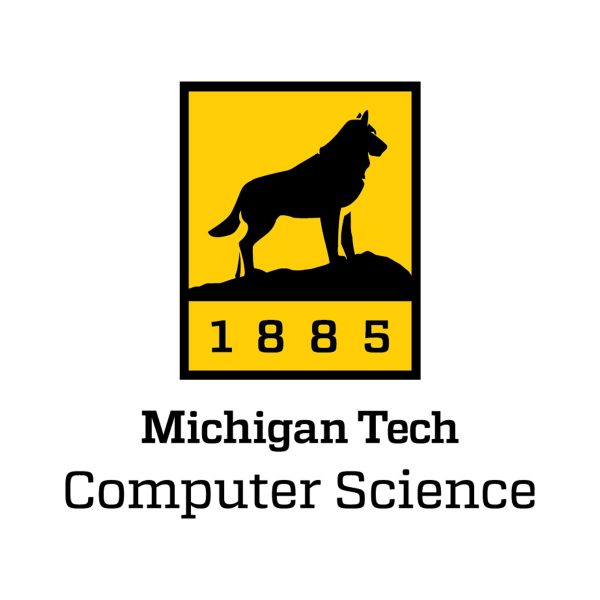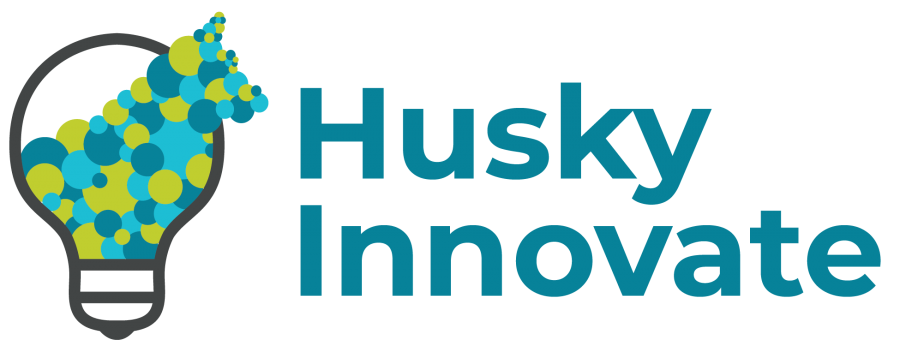August 2-6, 2021. PinT 2021 will be offered in a virtual-format.
Register online on the Registration Page.
Computer models and simulations play a central role in the study of complex systems in engineering, life sciences, medicine, chemistry, and physics. Utilizing modern supercomputers to run models and simulations allows for experimentation in virtual laboratories, thus saving both time and resources. Although the next generation of supercomputers will contain an unprecedented number of processors, this will not automatically increase the speed of running simulations. New mathematical algorithms are needed that can fully harness the processing potential of these new systems. Parallel-in-time methods, the subject of this workshop, are timely and necessary, as they extend existing computer models to these next generation machines by adding a new dimension of scalability. Thus, the use of parallel-in-time methods will provide dramatically faster simulations in many important areas, such as biomedical applications (e.g., heart modeling), computational fluid dynamics (e.g., aerodynamics and weather prediction), and machine learning. Computational and applied mathematics plays a foundational role in this projected advancement.
The primary focus of the proposed parallel-in-time workshop is to disseminate cutting-edge research and facilitate scientific discussions on the field of parallel time integration methods. This workshop aligns with the National Strategic Computing Initiative (NSCI) objective: “increase coherence between technology for modeling/simulation and data analytics”. The need for parallel time integration is being driven by microprocessor trends, where future speedups for computational simulations will come through using increasing numbers of cores and not through faster clock speeds. Thus as spatial parallelism techniques saturate, parallelization in the time direction offers the best avenue for leveraging next generation supercomputers with billions of processors. Regarding the mathematical treatment of parallel time integrators, one must use advanced methodologies from the theory of partial differential equations in a functional analytic setting, numerical discretization and integration, convergence analyses of iterative methods, and the development and implementation of new parallel algorithms. Thus, the workshop will bring together an interdisciplinary group of experts spanning these areas.

Department of Computer Science faculty and students presented two posters, a paper, and chaired a session at the 26th Annual Conference on Innovation and Technology in Computer Science Education (ITiCSE), conducted online June 26 to July 1, 2021.
“A Visualization for Teaching Integer Coercion,” a poster presented by James Walker with Steven Carr, Ahmed Radwan, Yu-Hsiang Hu, Yu Chin Cheng, Jean Mayo, and Ching-Kuang Shene, was one of three posters that received the conference’s Best Poster Award.
The poster describes the Expression Evaluation (EE) visualization tool. The tool is designed to aid students in understanding type conversions that take place implicitly in C. Understanding type conversions is essential to avoid Integer errors in C which continue to be a source of security vulnerabilities.
An additional paper and poster were presented at the conference, below. Dr. Linda Ott chaired a conference session on Students: Diversity.
Poster: Modeling the Growth and Spread of Infectious Diseases to Teach Computational Thinking by Meara Pellar-Kosbar, Dylan Gaines, Lauren Monroe, Alec Rospierski, Alexander Martin, Ben Vigna, Devin Stewart, Jared Perttunen, Calvin Voss, Robert Pastel and Leo Ureel II
The poster discusses a simulation model developed to teach middle school students about the spread of infectious diseases augmented with affordances to help students develop computational thinking skills. The simulation was partially developed as a Citizen Science project in the courses CS4760 and CS5760, User Interface Design and Human Computer Interaction.
Presentation: Frozen in the Past: When it Comes to Analogy Fears, It’s Time For Us to “Let it Go” by Briana Bettin and Linda Ott
This position paper describes a fundamental difference in attitudes toward the use of analogy in the computer science education community versus other STEM education communities. Additionally, it provides suggestions for how to address concerns in the CS education research community in order to advance research into the use of analogy in computing education
The 26th annual conference on Innovation and Technology in Computer Science Education (ITiCSE) was sponsored by ACM, the ACM Special Interest Group on Computing Education (SIGCSE), the ACM Europe Council, and Informatics Europe.

The 2021 EAI International Conference on Applied Cryptography in Computer and Communications (AC3 2021) takes place May 15-16, 2021.
Dr. Bo Chen, Computer Science, founding general chair of the new EAI conference, says the conference has brought together researchers, developers and practitioners from around the world who will focus on, discuss, and explore the area of applied cryptography in computer and communication systems.
Conference Topics
Conference topics include all aspects of applied cryptography, including symmetric cryptography, public-key cryptography, cryptographic protocols, cryptographic implementations, cryptographic standards and practices, as well as using cryptography to solve real-world problems.
Technical Program
The AC3 2021 technical program includes four main conference tracks at which 11 papers will be presented virtually in oral presentations.
- Track 1 – Blockchain
- Track 2 – Authentication
- Track 3 – Secure Computation
- 4 – Practical Crypto Application. Aside from the high-quality technical paper presentations, the technical program also features two keynote speeches, and one technical workshop.
Keynotes
The two keynote speeches will be delivered by Prof. Kui Ren (ACM Fellow, IEEE Fellow), Zhejiang University, China; and IEEE Fellow Prof. Robert Deng, Singapore Management University.
Workshop
A workshop, the First International Workshop on Security for Internet of Things (IOTS 2021), includes four technical papers which aim to develop cryptographic techniques for ensuring the IoT security. The conference, originally planned to be held in Xiamen China, was moved it online for the health and safety of participants.
Register to participate in the virtual conference here. Use the “Sign up for free access to the livestream” option.
European Alliance for Innovation (EAI) is an international professional community and a nonprofit organization. The goal of EAI is to empower the global ICT research and innovation community, and to promote cooperation between European and International ICT communities.
EAI Conferences span the globe with opportunities to meet, explore, and contribute to the world of ICT research. With 100+ annual events (including MobiQuitous, SecureComm, etc.), EAI is one of the world’s most prolific scientific communities.
EAI Conferences are published via Springer’s LNICST and EAI’s EUDL, and they are indexed in all leading indexing services, including EI, ISI, Scopus, CrossRef, Google Scholar, dblp, MAS, EBSCO, Microsoft Academic Search, CiteSeerX, and more.
by Graduate Student Government
The Graduate Student Government announces that registration for this year’s virtual Graduate Research Colloquium (GRC) is now open. Due to the continuation of the SARS-CoV-19 pandemic, the event will be held virtually to avoid any community spread from taking place.
It is gearing up to be an exciting event, and we are excited to see what everyone has to present. The GRC will be held Thursday and Friday, April 1/2. The event is a great opportunity to work on your presentation skills and prepare for upcoming conferences. Students are free to give an oral presentation, a poster talk, or both. All talks will be scored by judges from the same field as the presenter, who will give valuable insight and feedback on how you to improve the presentation.
Cash prizes are available for the top three places in both oral and poster presentations ( 1st – $300, 2nd – $200, and 3rd – $100). Registration closes at 11:59 p.m., Tuesday March 2, at 11:59 p.m. Don’t wait, register today.
Poster presentations will take place in a pre-recorded video style. Video submission deadline is March 22, 2021. A short Q&A session will take place with judges between 4-6 p.m. on April 1st.
Oral presentation will be a 12 minute talk followed by Q&A session. The event will be capped off with a virtual GRC awards ceremony. All participants and judges are invited to attend. The ceremony will be held from 5 to 7 p.m. April 2, following the close of GRC. Full information can be found on our website.
by Research Development
The eighth annual research day event will be held Thursday (Jan. 7). We welcome research faculty from all ranks, research staff, postdocs, and staff who support research to join, learn, and share. The theme for the day is: Research Efficiency; Knowing the right things to optimize your research strategy.
All information and sessions happening on Research Day can be accessed through the Research Day site.
Interested participants are encouraged to RSVP for sessions here.

Husky Innovate is organizing Innovation Week, a series of innovation themed events the week of January 25 to 29, 2020. Our goal is to provide opportunities for students, faculty and alumni to meet virtually to engage around the topic of innovation.
We will host panel discussions, alumni office hours and the Bob Mark Business Model Pitch Competition from 5:30 to 7:30 p.m. on Thursday, January 28.
We will celebrate entrepreneurship, innovative research and projects on campus and within our extended MTU community.
If you are interested in hosting an innovation tour, participating in a panel discussion, leading a workshop or something else, sign-up here.
Faculty and staff are invited to celebrate innovation week with an innovation themed learning module or student activity.